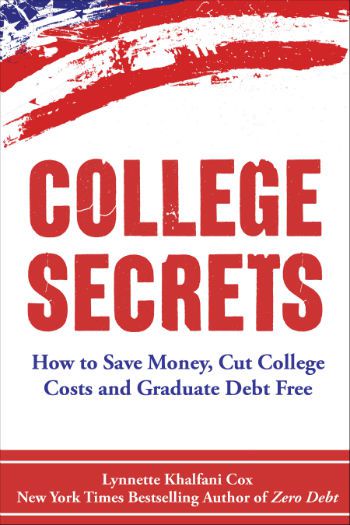You don’t have to be a literary genius to craft a winning scholarship essay. But creating a standout essay will take some work.
Here are five things you can do to craft a perfect scholarship essay.
1. Grab the reader’s interest right away
One of the best things you can do to write a killer scholarship essay is to have a really strong beginning – one that immediately catches the reader’s attention.
How can you do this?
Here are four strategies: Start with an interesting anecdote; reveal something surprising or unique about yourself; pose a provocative question; or begin “in media res,” which is Latin for “in the middle of the action.” When you start an essay in media res, you use a flashback, dialogue or a real-time description of something that previously occurred.
So let’s assume that a scholarship committee has asked you to share an instance in your life when you overcame some obstacle.
Now let’s further assume that you’re a 17-year old varsity athlete who plans to write about the time you accidentally broke your ankle playing basketball, and had to hobble around on crutches for three months.
That experience, which happened two years ago, gave you an appreciation for what disabled people go through and it led you to start doing volunteer work with people in wheelchairs, who can’t walk at all.
The straight-forward, uninspiring way to approach this essay would be to start with something like: “The time I broke my ankle playing basketball was definitely the most challenging experience of my life.”
A scholarship judge might read that opening line and literally yawn.
By contrast, here are a couple of other ways you might start your essay, using two of the strategies mentioned above.
In Media Res
“The cracking sound I heard was more like a ripple than a hard snap. In fact, I remember hearing my ankle shatter in multiple places before I actually felt the pain. Well before my coach and teammates came over to me as I writhed on the floor in agony, I knew my playing season was over: I had just broken my ankle playing basketball – in a practice game, no less.
I’m almost ashamed to admit it, but the first thing that flashed through my mind was: What am I going to do if I can’t play ball anymore?
As it turned out, I had plenty of time to ponder that question because for the next three months, I had to not only re-build my ankle, but also my confidence, my identity, and my outlook toward disabled people too.”
Provocative Question
“Even though football injuries receive a lot of media attention in the U.S., did you know that among high school athletes in America, basketball players are actually three times more likely than football players to suffer serious injuries?
I learned that the hard way, when I became one of those statistics two years ago. I broke my ankle during a practice game of basketball, and the experience changed me, and my outlook towards the disabled, forever.”
Author’s Note: I just completely made up that statistic about basketball injuries. But hopefully, you get my point — which is that this hypothetical student could use a shocking question with a surprising stat as a good introduction for an essay.
Do you also see how using these suggestions can help you to craft a more exciting, memorable scholarship essay?
2. Let your true personality shine through
Scholarship essays that are boring or that sound like “the same old thing” will fail to impress scholarship judges.
What makes a scholarship essay boring? It’s when the content is so generic, so commonplace or so forgettable that you don’t stand out from the rest of the applicants.
Don’t settle for boring. Strive for greatness.
Anything – and I really do mean anything – that you write about can be a “great,” interesting topic, as long as you write about the subject with passion and creativity.
When my oldest daughter, Aziza, was applying to college, she wound up winning more than $500,000 in scholarships. In addition to being a terrific, well-rounded student, she wrote great essays.
Recently, I looked back on my daughter’s essays and what I found showed me that she often wrote offbeat, quirky topics, funny stories or sentimental tales — which all actually reflect her personality.
For example, in one essay, she wrote about her younger teenage brother – whom she initially derisively referred to as her “little bother.” Then she proceeded to explain why he was “so annoying.”
After that, however, Aziza shifted her tone in the second half of the essay, and wrapped it up in a very poignant way, expressing how close she and her brother were, despite their many sibling arguments. Her conclusion to the essay captured how much she really loved him, and vice versa.
In another essay, Aziza wrote about her light-hearted enjoyment of doing accents – simply because she got a kick out of impersonating various speech patterns. She conveyed why she loved doing everything from French, Italian and British accents (both Cockney and the Queen’s English!) to Bostonian, Minnesotan, and Texas accents.
And in a third essay, Aziza wrote about being a “late bloomer,” revealing that, at age 17, she had yet to do a number of things most of her peers had already done. As she put it, she wasn’t “on social media (yet); did not have a driver’s license (yet); and had never been kissed (yet).”
All those essay topics worked to help the real Aziza shine through.
3. Answer the “why you” question – even if it’s not directly asked
Many scholarship applications feature an essay question that basically says: “Tell us why you should get this scholarship.”
Even if that question, or some variation of it, isn’t explicitly asked, you should assume that question is being implicitly posed. That’s because, ultimately, scholarship judges (consciously or subconsciously) all want to know: “why you are more deserving than the next person?”
So your scholarship essay should ALWAYS address this question in some manner. Some students will take a direct approach to this question, stating something like: “I believe I deserve this scholarship because …” That tactic can work.
But you don’t have to be so overt in your essay. You can also convey that you are deserving in the stories you tell that reflect your community service, work ethic, personal accomplishments or adversities you’ve overcome.
Your essay should also take into account the reality that scholarship committees often reward deserving applicants who exemplify certain personal qualities and characteristics. Among these qualities are: leadership or leadership potential, initiative, creativity, empathy for or service to others, perseverance, and humility.
As a result, when constructing your essay or personal statement, be sure to use examples or anecdotes that demonstrate that you possess these characteristics.
4. Utilize a set of best practices
What are “best practices” when it comes to essay-writing for college scholarships? Actually, they’re the same rules you should follow when submitting your college applications.
Double-check everything: spelling, grammar, word choice and so on.
Let a trusted third party, like an English teacher, look over everything and offer constructive feedback.
But don’t lose your voice in the essay. Don’t throw in a bunch of big words just to try to sound smart. Use your natural language. There’s no need to try to sound like a walking encyclopedia – or worse, an adult.
Scholarship committees can sniff out essays that have been so edited, doctored or changed in ways that they no longer sound authentic. Don’t let that happen to your essay or personal statement.
5. Close your essay on an upbeat note
Finally, even if you tackle a serious subject, or you write about a heavy or sad topic, be sure to end your essay in a positive way.
You don’t want to depress the scholarship committee, come across as morbid or hopeless. On the contrary, you want to convey that you see yourself as having a bright future and that this scholarship would help you achieve your goals.
That’s what scholarship judges are hoping for – that if they put their faith and dollars behind you, you’ll do some good with the money and make them proud.
So wrap up your essay in a strong fashion. It can be humorous, it can link back to your introduction, or it can be forward-looking.
Any ending you choose can work as long as it is genuine and suggests you’re the type of person who’ll make a positive difference.
By concluding your essay on a high note, you’ll help the scholarship committee see that awarding you a scholarship would aid you, the organization’s own mission, and others that you will impact in the future too.
Copyright Lynnette Khalfani-Cox, The Money Coach, Author of College Secrets










